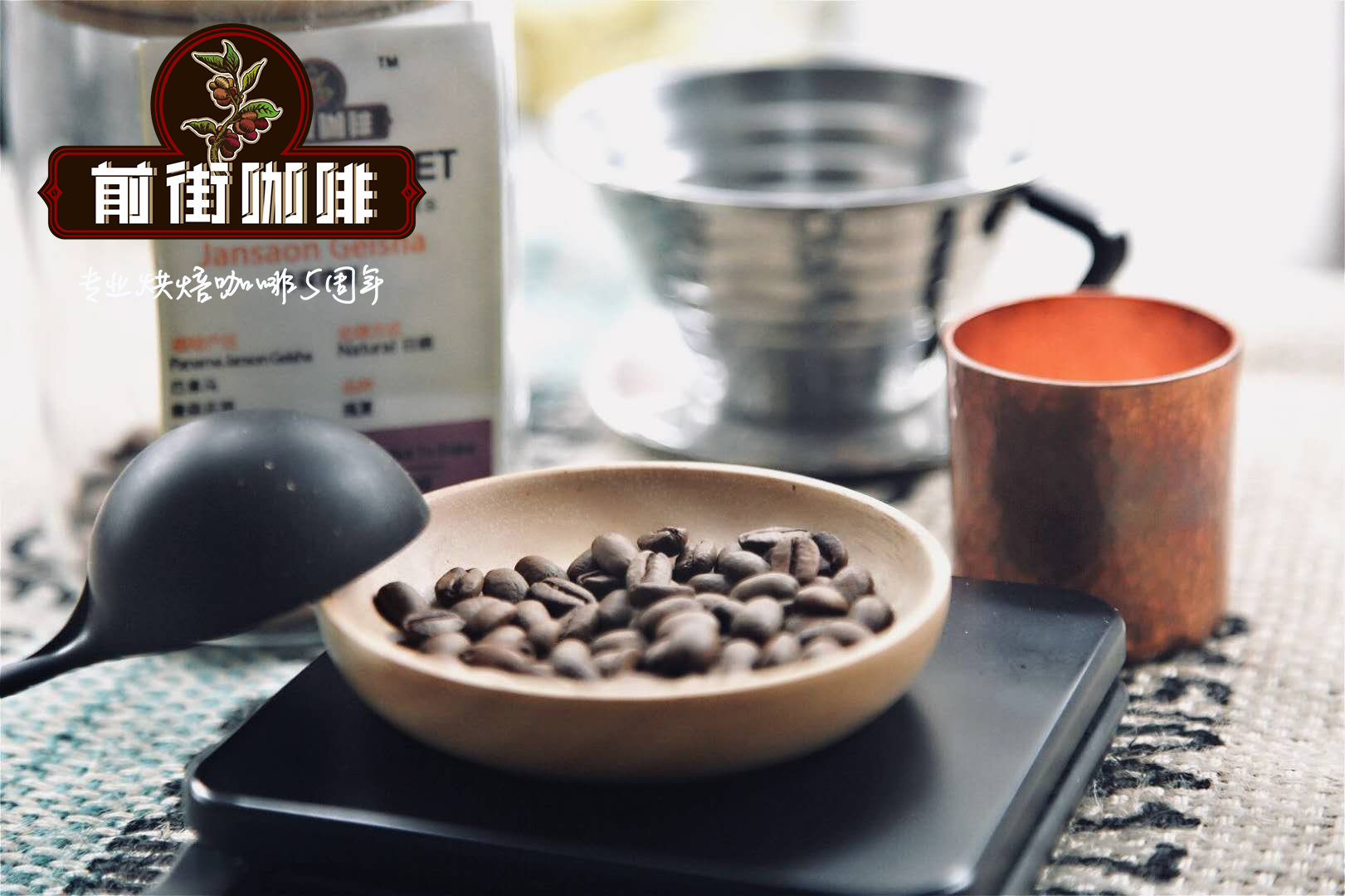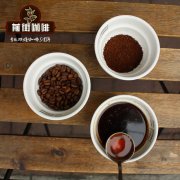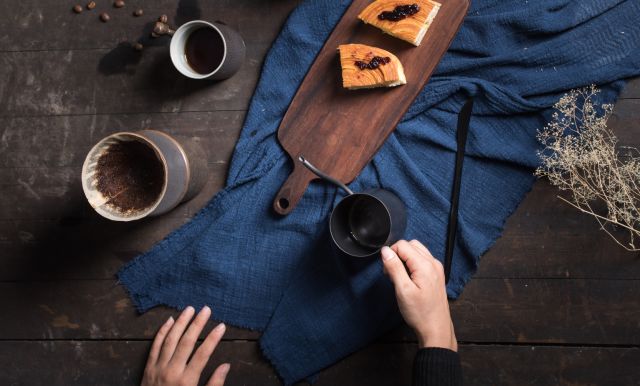Coffee Bean Baker: the Flavor Guardian of the connecting Link

Professional coffee knowledge exchange more coffee bean information please follow the coffee workshop (Wechat official account cafe_style)
The concept of the third wave was put forward by the American bean baker: coffee pays more and more attention to roasting and is gradually moving towards a path of refinement, high quality and distinctive features. Coffee farmers, importers, bean bakers, baristas and consumers all play important roles in the coffee chain. Among them, the bean baker who uses roasting technology to highlight the characteristics of coffee is the soul of the coffee industry.
The bean baker mainly uses the touch and technology to bake the ideal coffee beans. But with the evolution of the trend, apart from focusing on the state of coffee beans, what other roles have been changed by the baker? May be able to connect producers and consumers as a bridge? Or become the taste bud enlightenment of consumers? The recent story of Kate Avansino, an American bean baker, opened a store in Mexico, and the Dominica bean baker promoted boutique coffee, showing the possibility of different roles for bean bakers. At the same time, listen to the views and reflections of the Taiwanese bean baker on his role.
"regard yourself as the flavor guardian of coffee beans and properly pass on the flavor of coffee beans grown by coffee farmers to consumers. The dream of opening a coffee shop in the favorite coffee bean producing area to personally bake the unique flavor of the local coffee. Running from the United States to Oaxaca, Mexico, to open a coffee shop, she was able to build her own baking paradise by working closely with producers and patiently communicating with consumers.
If you want to make good coffee, you must first establish a close relationship with coffee farmers. In fact, many coffee farmers do not know and do not have the ability to taste the finished products grown by themselves, which makes the market demand of coffee farmers very vague. As a result, apart from conducting on-site cup testing (coffee cupping) with sellers when buying coffee beans, they also often brew coffee with coffee farmers to help them understand the final product.
If you set up a coffee shop in a different place, you will inevitably encounter problems that are not in keeping with the local taste. Avansino's favorite coffee flavor conflicts with local consumer preferences, but she is well aware that there is no right or wrong in the world of coffee, only different preferences. And she found that dialogue is the best solution to the conflict. Let customers understand the logic and scientific basis behind baking beans, brewing and heating milk. Before brewing coffee, let guests smell dry coffee powder to experience the beautiful aroma of ground coffee. Avansino's active communication shortens the distance with consumers.
In addition to giving customers a better understanding of the imported coffee, Dominica bean baker Coral De Camps also plays a serial role. Connecting producers and consumers with the role of baking beans can also benefit from it and achieve a win-win situation of multi-benefit. As she said, "Bean roasters can connect producers and consumers with good quality, stable sources and high acceptance of coffee." "it is found that although the Dominican Republic is one of the major coffee exporters, it does not have its own specialty coffee culture. So she decided to establish a local coffee feature in Dominica.
Despite the vision, Camps soon faced an ironic reality: as a major coffee producer, Camps could not find local, high-quality coffee beans in Dominica-because almost all of them were exported. Most of the coffee that locals drink is imported from other countries. But after traveling to coffee farms across the country and overcoming the lack of raw materials, Camps found that the role of a self-baker opened up more possibilities: it could be a spokesman for coffee beans, a bridge between producers and consumers, and the role of education.
Set up a workshop on the theme of local coffee, so that customers can experience the taste, and then affect their willingness to buy local coffee beans. In this way, a stable customer base of local coffee beans is gradually formed, and farmers are more willing to produce more special coffee beans. Like a coffee farmer who cooperates with him, he is not willing to use honey coffee 1 to make coffee beans until he is sure that a customer has purchased the finished product. Coffee roasters connect consumers and coffee farmers by opening consumers' taste buds, forming a virtuous circle of the coffee industry.
Note 1: originated in Costa Rica and is currently the most widely used in Central America. Sift the coffee pulp and leave the pectin layer directly and expose it to the sun. It can be divided into white, yellow, red, black and golden honey according to the different proportion of pectin and the way of drying.
When sharing foreign cases with Taiwan bean bakers, I found that Taiwan's national conditions and market maturity were different from those of the above-mentioned regions. Because of the distance from the original area, Taiwanese bean bakers focus on baking the beans themselves and how to provide consumers with good coffee, striking a balance between popular tastes and their own ideas.
Bean baker Kui Xian mentioned that he thinks what the baker does is to pick the beans, discover the characteristics and flavor of the coffee, and use his own technology to deal with the selected beans in the "right direction." "the right direction is not to force what the coffee beans will look like, but to roast the coffee beans handled by the producers properly and transmit the original taste to the consumers. Bean bakers are important, but they are not as important as weather, local conditions and producers; we are just an auxiliary role. "said the fairy.
Deng Yongrong, a bean baker, said that Taiwan is an end market, and it is more difficult for coffee producers who mainly import beans to have direct access to the producing countries. In this case, the bean baker is the tradeoff: striking the best balance between coffee characteristics and consumer preferences. "We promote the characteristics and original flavor of boutique coffee, but after observation over the past few years, Taiwanese consumers are still not very receptive to light roasted coffee with a slightly sour taste. In fact, it has something to do with the fact that when Japan brought coffee to Taiwan, the beans were roasted more deeply and moderately, which made Taiwanese consumers accustomed to strong, pure, and fragrant flavor. At this time, the bean baker is to grasp a balance point, highlighting the characteristics of coffee beans, but also to take into account the preferences of consumers. "will it be difficult for consumers to promote the flavor of their favorite coffee? Kui Xian said that many consumers already have a preference for coffee, so bean bakers no longer play the role of authoritative educators, but share. "now I find that the consumers who come to our store already know their favorite producing areas, and their taste preferences are very different from those of ten years ago. So what I want to do is to make good coffee more easily. I don't want consumers to drink coffee and become just absorbing knowledge. If the guest asks questions about coffee on his own initiative, I will certainly share a lot with him. But recently, many people's motives are so simple that they just want a good cup of coffee. "in promoting the flavor of coffee beans, Deng Yongrong believes that coffee needs to be close to consumers. "after reading the test results of the raw bean merchant's cup, you can roughly understand the obvious flavors of this coffee. At this time, I will choose three obvious flavors to highlight, so that consumers can easily identify when drinking. So when we do baking, we will decide the way to bake beans according to the data. After all, taste buds are subjective, and sometimes shallow roasting is to show seven or eight coffee flavors, but consumers can't drink them. Such coffee is far away from him. Barista Chou Yung-hsien adds that focusing on the degree of roasting of coffee beans is the first step for consumers to experience the charm of coffee.
"We can't force consumers to drink very shallow baking, but we don't really want to do the deep baking that customers expect, so we compromise on medium-deep baking. Such beans have an advantage, when drinking can taste a little bitter, but with a little sour, is a good opportunity for guests to accept shallow baking. "Coffee culture in each region has been carried out in different positions and patterns, and different patterns and ideas can be seen in coffee makers. Some bean bakers use technology and influence to drive consumers, and then connect producers to form a good tasting cycle. On the other hand, bean bakers in Taiwan can see the characteristics of coffee beans with their own sensitivity, roast them appropriately, pass on their flavor characteristics to consumers, and narrow the distance between drinks and consumers.
Under the coffee craze, many people put their ideas into coffee and give it a different look. With more and more enthusiasts, all kinds of coffee blossom and have their own supporters. In addition to producing the charming aroma of coffee with skillful skills, bean bakers may also play more different roles.
Important Notice :
前街咖啡 FrontStreet Coffee has moved to new addredd:
FrontStreet Coffee Address: 315,Donghua East Road,GuangZhou
Tel:020 38364473
- Prev

How is coffee economy popular in China? The present situation of Coffee Market in China
Professional coffee knowledge exchange more coffee bean information Please pay attention to coffee workshop (Wechat official account cafe_style) Coffee has become a necessity of petty bourgeoisie life and a popular fashion drink in China. Data show that from 2011 to 2015, Starbucks opened more than 1300 new stores in China. At present, Starbucks has opened more than 3 stores in more than 130 cities in China.
- Next

Is there really a trillion-dollar coffee market in China? Three great opportunities for the coffee market in the future!
Professional coffee knowledge exchange More coffee bean information Please pay attention to coffee workshop (Weixin Official Accounts cafe_style) interpretation: At present, the coffee market scale in China is about 110 billion yuan, far away from the total market volume of 1 trillion yuan. In response to the old saying, there is a long way to go for the take-off of China's coffee market. China's coffee market is big enough and profitable enough
Related
- What brand of black coffee is the most authentic and delicious? what are the characteristics of the flavor of the authentic Rose Summer Black Coffee?
- Introduction to the principle and characteristics of the correct use of mocha pot A detailed course of mocha pot brewing coffee is described in five steps.
- Which is better, decaf or regular coffee? how is decaf made?
- How much is a bag of four cat coffee?
- How about four Cat Coffee or Nestle Coffee? why is it a cheap scam?
- Which is better, Yunnan four Cats Coffee or Nestle Coffee? How about cat coffee? is it a fake scam? why is it so cheap?
- How about Cat Coffee? what grade is a hoax? which instant coffee tastes better, four Cat Coffee, Nestle Coffee or G7 coffee?
- Process flow chart of coffee making-Starbucks coffee making process what coffee tastes good at Starbucks
- The top ten best coffee beans in the world Rose summer coffee or Tanzanian coffee tastes good
- Yunnan four cat coffee is good to drink?_four cat coffee is a big brand? four cat blue mountain coffee is fake?

